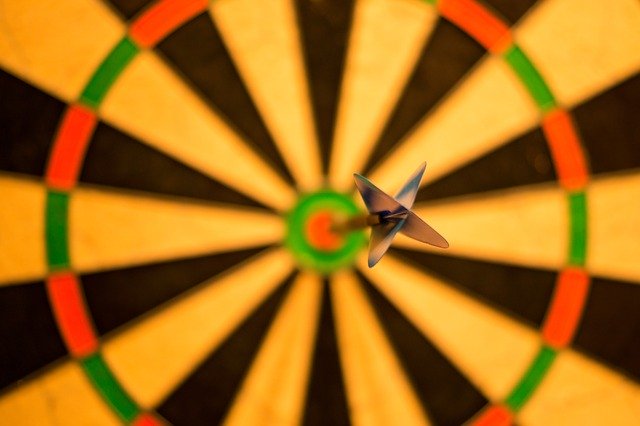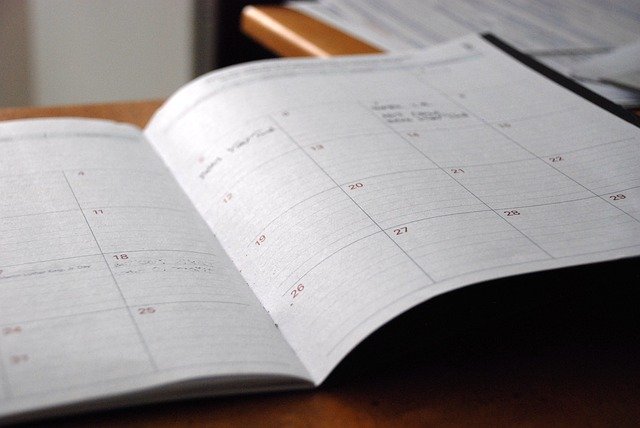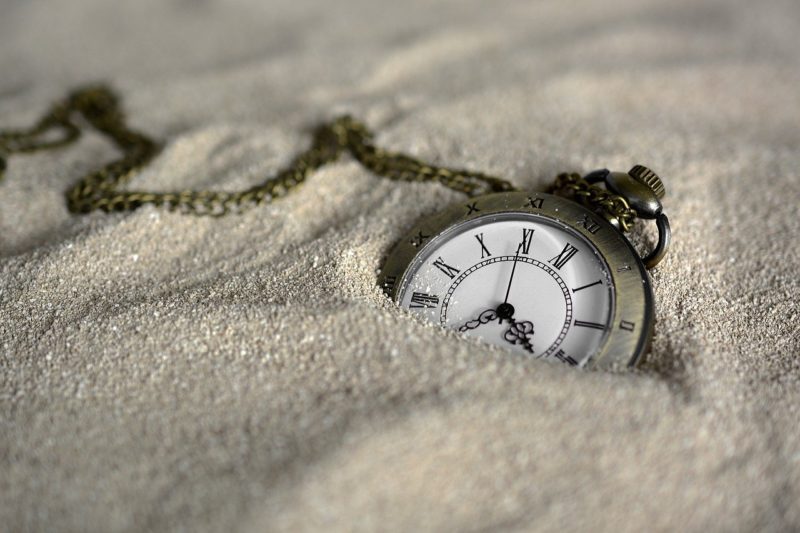How Much Time Should You Spend Studying a Language?
Everyone’s busy. Running around trying to finish work, complete errands, raise children, stay healthy, and get enough sleep is exhausting. It’s no wonder a lot of people blame lack of time for not learning a language. But, that’s an old excuse. You don’t need that much time a day to reach fluency. So, how many hours a day should you study a foreign language for? Not as much as you think.
How to Find the Time to Study a New Language
If only we woke up 15 minutes earlier, if only we didn’t eat that extra cookie, if only that red light had stayed green a moment longer, our day would have been perfect. Of course, in the real world, that rarely happens. We cram in as many activities as we can each day, and with all our competing priorities, it can feel like a losing battle.
How, then, can we find time to commit to consistent language learning activities–that is, studying on a regular basis? Equally important, how much time should we be studying each day?
In a perfect world, you’d carve out 45-90 minutes per day for your language learning efforts. You might divide your time across multiple activities and resources: you might use an app for vocabulary, listen to audio or video for comprehension, read short stories, engage with a native speaker, and practice writing or typing.
Of course, none of us lives in that perfect world; few of us can devote so much time on a consistent basis across such a rich range of resources. Getting back to the key question: how much should you study? The short answer is as much as possible. Realistically, however, at least 20 minutes per day should be dedicated to learning a new language.
The ideal amount of time to spend on daily study, if you can find the time, is an hour, but you don’t need to cram it all in at once. And I have some tips about how to find the time.
Micro-Learning Can Help You Study a Foreign Language

When language learners are still in high school or college, studying is a part of daily life. Once these language learners graduate, find jobs, and start families, they find it more challenging to set aside time for study. Fortunately, even individuals who have a packed schedule can study for just a few minutes per day, using a methodology called micro-learning.
Micro-learning is a technique whereby a difficult task is broken into a series of very quick learning interactions distributed over time. Many of these tasks are performed on cell phones, tablets, or computers.
These devices can be accessed multiple times a day during routine everyday occurrences, such as waiting for a bus or eating lunch. Micro-learning uses your spare time without the need to sit down and study for a big chunk of time.
For my own part, I find I lose focus when I study for more than 20 or 30 minutes at a time. I still try to put in my hour per day. But using micro-learning, I break up my efforts into smaller chunks throughout the day. This approach allows me to remain focused with a bit of flexibility. I also find it helps me look forward to my study “sprints” rather than dreading study “marathons.”
3 Ways to Set Realistic Foreign Language Study Goals

When you’re considering how much to study, you’re actually thinking about setting goals. Like any project, setting intentional goals really helps because it breaks up a large project into smaller steps and helps you track your progress.
As you meet your goals, you’ll feel good about yourself, which helps you stay motivated to continue. It’s worth your time to set language learning goals before you plunge in.
1. Draw a Time Grid to Figure Out How Many Hours You Need to Study For
Many language learners start their language study program by assuming they will study for several hours every day, in spite of having jobs, families, and friends to consider. Realistically, such an assumption is bound to end up as a terrible failure. Instead, assess your work and leisure schedule, and then plan on where in this schedule you have the time for study.
To achieve this end, draw a calendar grid that features all the days of the week, with each day broken down into individual hours. Fill it in with your typical daily activities.
Be specific. For example, if you commute to work for one hour, then that hour should be labeled as “commuting,” not “working.” If you spend one hour watching TV, that block of time should be labeled as “watching TV.”
Hopefully, you’ll find some free time within your grid. These times are the most obvious candidates for study. However, if there is no free time, or if free time is lacking on certain days, then you can identify activities that might be given up in order to make more time for language study. Finally, look for activities during which you can study while completing a separate task (like commuting).
When planning a study schedule, it’s imperative not to be overly ambitious. For example, blocking every free moment with language study will result in burnout. Likewise, eliminating favorite activities, such as watching TV, going out with friends, or resting, is not realistic. In short, you need to create a schedule you can commit to without being overly taxed.
It goes without saying that interruptions during study sessions must be avoided or minimized as much as possible. Fortunately, if study periods are scheduled, you as the language learner can communicate to your friends and family members that you are unavailable during these times.
2. Incorporate Diverse Foreign Language Study Activities
True language fluency is a product of reading, writing, speaking, and listening. Therefore, the best study methods take advantage of all those qualities. To this end, language learners should certainly spend time alone, where they can focus on reading, writing, listening and speaking – picking up new vocabulary and learning proper sentence structure and meaning.
However, that’s only half the process of attaining true language fluency. To truly master a language, you should also seek out and work with native speakers of that language. These native speakers can be found in the classroom, in your local community, through a private tutor or instructor, or via a language exchange partner.

Fortunately, finding language exchange partners is fairly easy, thanks to a variety of online platforms. A simple Google search will turn up dozens of options. Native speakers of one language can team up with native speakers of another language using Skype or various social media platforms. The platform also allows you to hire professional language instructors or tutors and pay for single or batch lessons.
Furthermore, these tutors should provide regular feedback about your progress, including a report every few months, to ensure that you are on the right track. Depending on your schedule, budget, and language proficiency, different language exchange partners can be utilized to aid in both the language study and practice processes.
Align hours of foreign language study with personal goals
We all learn languages for different reasons: to converse with spouses or in-laws; to land new jobs or get promoted at the ones we already have; or to read literature in its native tongue, to name just a few.
Depending on your personal goals, language study methods and materials should differ. For example, if you wish to better converse with your in-laws, you’ll probably spend a lot of time listening to radio broadcasts and reading the newspaper in your desired foreign language.
You’ll also attempt to correctly pronounce everyday phrases and words. A language learner who wishes to enjoy literature in its native tongue will spend more time analyzing verb forms or looking up the different meanings of words.
3. Create SMART Goals to Study Your Foreign Language

Every language learner needs a way to measure and verify their progress. Creating SMART goals helps you track the success of your method of language study. Likewise, if you have any personal targets, such as speaking more fluently or reading faster, setting SMART goals helps determine how many hours a day you should study a foreign language each day.
SMART goals were first introduced by George T. Doran in 1981, in a paper he titled, “There’s a S.M.A.R.T. Way to Write Management’s Goals and Objectives.” To help improve the likelihood of achieving an objective, he set criteria for goals: that they are specific, measurable, achievable, relevant, and time-bound.
Specific
Goals that are specific typically answer the questions of who, what, when, where, or which. For example, a specific language goal might be to become capable of reading a newspaper in six months. This goal is specific because it answers the questions of who (the language learner), what (read a newspaper) and when (in six months).
Measurable
If reading a newspaper in six months is your goal, there needs to be a way to determine that you are pronouncing the words correctly and that you understand what you are reading. One way to measure fluency is through standardized proficiency tests that enable instructors or employers to know that the person can speak the language. Similarly, some apps provide tests so language learners can measure their success.
Achievable
For your goal to be achievable, you must possess certain skills and tools, or the means to acquire them. As a language learner, this means you need access to a variety of learning materials. These might include textbooks, study notes, language-learning apps, audio courses, books, movies, or audio developed by and for native speakers.
Relevant
A relevant goal is aligned with the larger schematic of your life and ambitions. Perhaps you wish to read the newspaper so you can easily get around a foreign country when you travel there. If this is the case, then wanting to read the newspaper is a relevant goal.
Time-bound
Finally, your goal must be tied to a given target date. Otherwise, there will be no motivation to complete it. Often, if a goal is time-bound, it’s useful to create halfway or even quarter-way targets to keep you on track.
Watch Out How Many Hours a Day You Study!
As we wrap up this section, I’ll leave you with another personal experience that may hit home for some of you. During that eight-week period I mentioned earlier, I studied four hours per day, Monday through Friday. Nobody told me how many hours a day I should study a foreign language for. I woke up extra early, crammed in some study during my lunch break, and burned the midnight oil. I felt I was studying the right things the right way, and I think that’s a fair assessment.
At the time, I felt like a bit of a humblebrag. I’d let slip that I was very disciplined in my studies, and I objectively advanced my learning. Over those eight weeks, I invested 160 hours of effort into my studies. When I was done, I decided I’d earned a rest. Then I got really busy, and of course, something popped up at work. It took me about three months to get back to a consistent (less intense) study routine.

By the time I got back into my study routine, I’d lost some momentum and some of what I thought I’d learned had begun to fade in my mind. Over the course of two months, I studied for 160 hours, but over the course of five months, I’d still only clocked those 160 hours.
Let’s be generous and pretend I only had to re-learn 20 percent of the material I’d forgotten. On a net basis, that means I benefited from 128 hours of study over five months. Those five months reflect about 150 calendar days. Had I invested around 45 minutes per day on a consistent basis, I’d have been a lot more efficient with my time, and I wouldn’t have burned out following my eight-week marathon.
Live and learn, right? Feel free to learn from my mistakes. Figure out how many hours a day you should study a foreign language, and then build on that.







